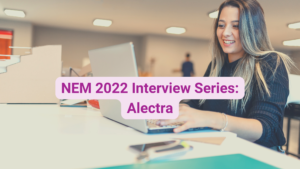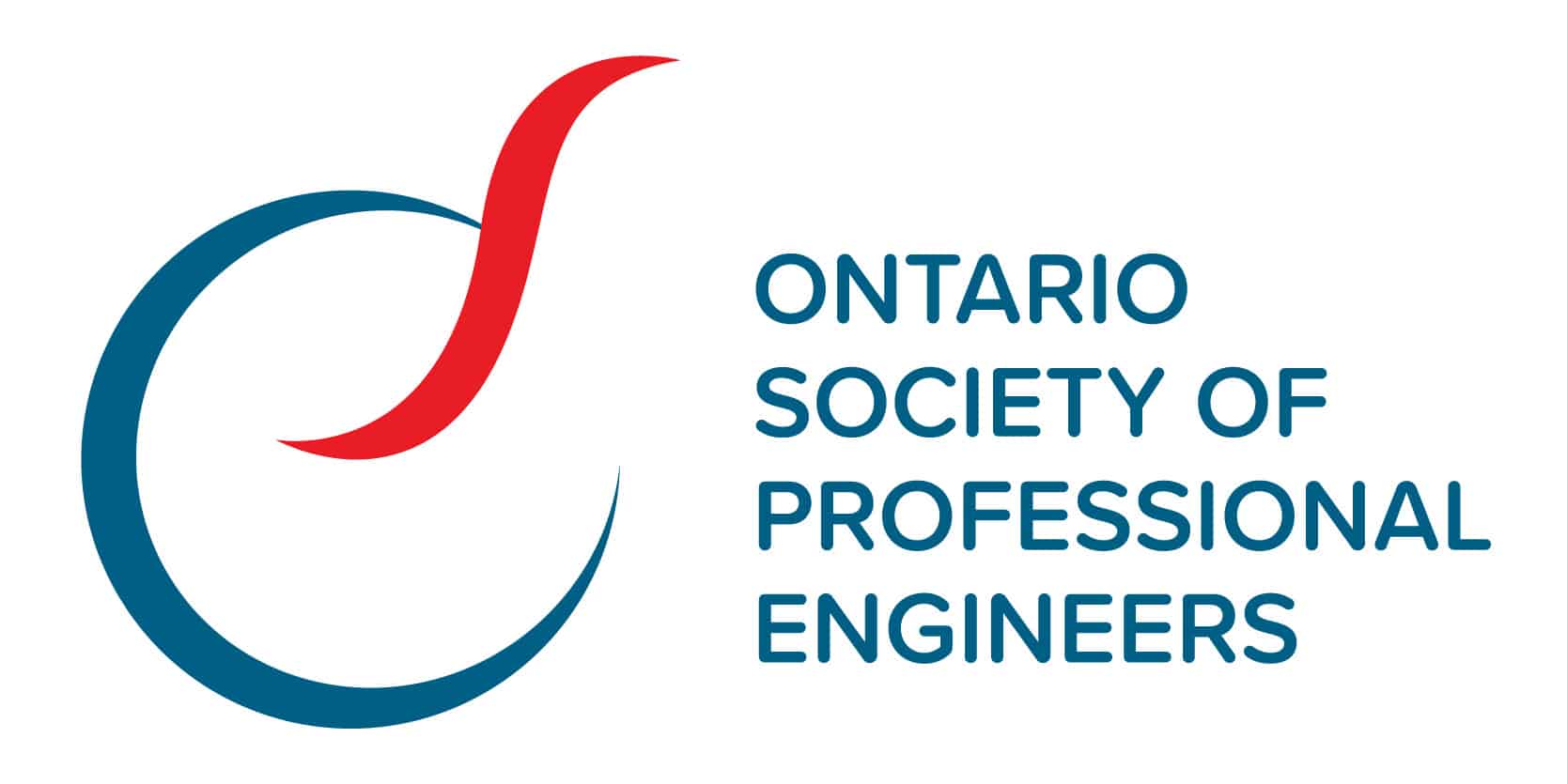
Leading up to National Engineering Month Ontario events, we are connecting with leaders in Ontario’s engineering community to talk about the future of engineering. This week, I met with Doug Fairchild who is the Vice-President of Distribution Design at Alectra Utilities Corporation. What follows is a Q&A session about the importance of lifelong learning when it comes to the power sector in the province and beyond.
Q: Can you tell me a little bit about why National Engineering Month is important to Alectra and the engineering profession overall?
National Engineering Month is a great opportunity to raise awareness about engineering. It’s important to me not only as an engineer but also as a father. My daughter is 16 and she has indicated an interest in the field. I’ve told her on more than one occasion that the most influential engineer in my career was a woman and I think that’s important for her to hear, so celebrating engineering and supporting the next generation of engineers is important.
I also think the field of engineering and Alectra’s slogan of ‘discovering the possibilities’ complement one another, as, by nature, engineers like to solve difficult problems. The industry is shifting, not only is the existing infrastructure in need of replacement, but we’re at a point in time where we can rethink and reimagine the grid. We need young engineers with fresh ideas to take a very traditional sector and transform it to meet tomorrow’s energy needs.
Q: The theme for NEM is lifelong learning. What does the concept of lifelong learning to you and to Alectra, and why is it important in the work that you do.
Lifelong learning is built into engineers’ DNA. By nature, we are problem solvers – there is always something new to learn and there’s always more than one way to accomplish something. Take Alectra for example, we’re a merger of five companies that all essentially did the same thing – provided power – yet we all did it with different people, processes, and technology. Yet, the end product is the same – you flip the switch and the lights come on. The success of this merger is because of the vast knowledge and experience of our employees. From the very experienced to the many new hires in the organization, we’ve learned from one another and talked to one another along the way. It doesn’t matter whether it’s a completely novel idea to solve a problem, or reengineering a solution, lifelong learning is essential to any company’s success and is the key to the engineering profession.
On the topic of lifelong learning, I’m excited to say Alectra just started its own internal engineering-in-training program. We support our EITs through training, mentoring, and job rotations. We have staff taking online and night courses, working towards becoming an engineer. We regularly hire co-op students and intern students from the surrounding colleges and universities. A large majority of our new engineering hires advance through this system.
Q: Can you tell me a little bit more about the kind of projects that you work on?
Alectra provides electrical service to over 1,000,000 customers throughout the province. We maintain and inspect some $3 billion worth of electrical distribution assets. We also design, install overhead and underground infrastructure to power individual homes, new subdivisions, local businesses, hospitals, and electric vehicle charging stations, to name a few.
Our staff, including myself, see our purpose as helping to grow the many great towns, municipalities, regions, and counties we serve. At Alectra, there’s real pride and satisfaction in knowing we’re providing power for life. It’s an essential service and that makes coming to work and doing a good job very rewarding.
Q: How has the engineering profession changed over the past 5 to 10 years and how is Alectra capitalizing on those changes and innovating for the future?
One change that comes to mind is the frequency and severity of extreme weather events, we see it all over the world and even in our own backyard. We need to factor climate change into the way we design, build and operate our systems. Alectra is building that resiliency into its system. Engineering standards, codes, software, and the like need to change along with the times. We don’t just replace assets like-for-like. Alectra is always looking at ways to improve the overall system reliability and ensure our infrastructure is safe to the public.
Alectra is one of the first local distribution companies to commit to net zero emissions by 2050. That’s exciting for us and represents both a challenge and opportunity. We are already exploring ways to reduce our carbon footprint. From solar power investments, LEED-certified construction, onsite EV charging stations, fleet conversion, material standards, and other supply chain options.
Q: Are there any specific initiatives or programs or outcomes that you want to tell me a little bit more about today?
One of the main pillars of Alectra’s “Strategy 2.0” is grid modernization. We recognize that the grid is transforming. Typically, power is produced at very large generating stations, transmitted over hundreds of kilometers at high voltages, and finally distributed to the end-user at a lower voltage. That’s the traditional model. We see two transformative things happening to our grid. First, is the mass adoption of electric vehicles. All the major automotive manufacturers are moving in this direction. Second, we’re seeing a huge opportunity for energy storage and energy production at the local level.
Alectra is well-positioned to continue to be an energy ally to our customers. We see ourselves as owning and operating Distributed Energy Resources (DERs) as well as supporting our customer base on their own journey. Whether it’s to reduce their carbon footprint, conserve energy and save money on their power bill, or improve their own system reliability, the move towards clean energy and electricity is seen as a major part of that solution.
One example is the work that Metrolinx is doing across the province. We are excited to work with them to supply power to their transportation network. We’re seeing municipalities and regions looking to convert their bus transit fleets from diesel to electric. We’re seeing developers incorporate solar heat pumps and other greenhouse gas-reducing technologies into their housing projects. In short, the grid is evolving and Alectra is evolving with it – in fact, we see ourselves as allies to help drive the change.
Q: What does the future of engineering look like and how does Alectra fit into that?
Our industry is changing and new technologies are emerging. Customers are demanding greener choices and that’s an opportunity for our sector. I would say the future of engineering is very bright. The way we plan the distribution system, design it and build it is evolving so we will continue to need engineers to help Alectra achieve its goal of enhancing the quality of life in the communities we serve.
Q: Do you have any final thoughts or anything else that you want to share?
As an engineer myself, I’m a big fan of engineering and I want to put a call out to anyone that is considering becoming an engineer. If you have a passion to make things better or solve difficult problems, you may have just found your calling. Our society needs engineers to make the world a better place. It’s a rewarding field and it’s vast in terms of scope and size. The opportunities are endless, the work is fulfilling and the career is meaningful.
National Engineering Month is Ontario’s engineering event of the year.
Learn to change the future of engineering – together. Attend National Engineering Month Ontario events. With bold topics, industry expertise, and diverse perspectives, you won’t want to miss it. To sign up for a #NEM2022 event, please visit our website.


